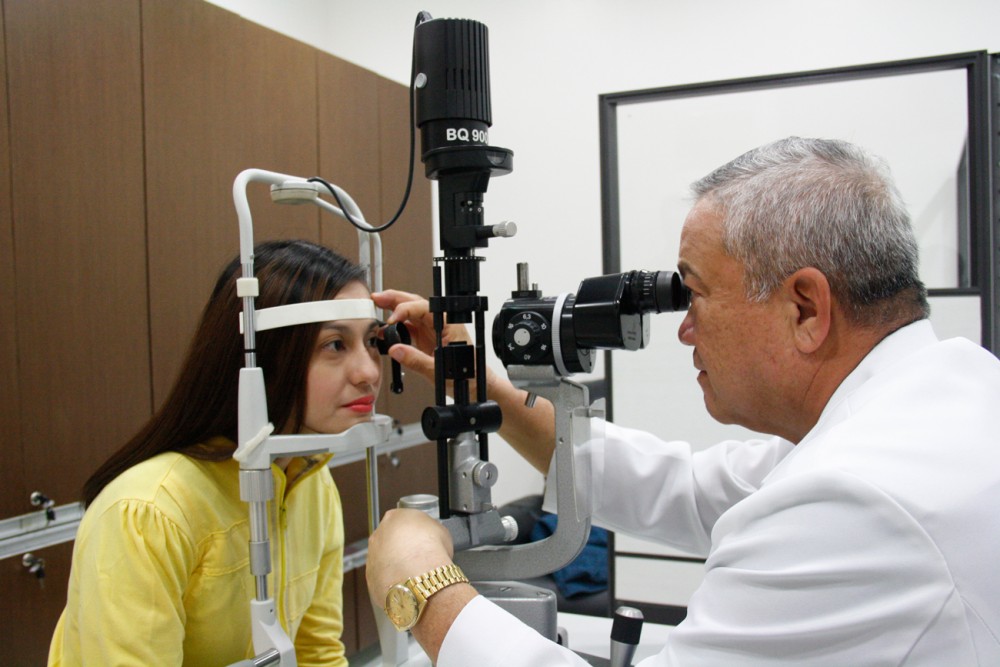A Comprehensive Guide to Eye Surgical Procedure Treatments Available at Your Optometrist's Practice
In the realm of ophthalmology, the improvements in eye surgical treatment treatments have opened a world of opportunities for those looking for boosted vision and eye health and wellness. From the commonly known LASIK eye surgery to the much less acquainted Corneal Transplants, the variety of treatments readily available at your eye physician's technique can deal with a variety of vision-related issues. Comprehending the nuances of each treatment choice and exactly how they can possibly change your vision requires a closer consider the details and results related to these procedures. Let's explore the diverse landscape of eye surgery therapies that could potentially boost your visual skill and lifestyle.
LASIK Eye Surgical Treatment
When considering vision improvement procedures, LASIK eye surgical treatment becomes a prominent option for people looking for lasting renovation in their sight. LASIK, which represents Laser-Assisted in Situ Keratomileusis, is a popular refractive surgical treatment that aims to remedy typical vision troubles such as nearsightedness, farsightedness, and astigmatism. This procedure involves making use of a laser to reshape the cornea, allowing light to be effectively focused onto the retina, resulting in more clear vision without the demand for glasses or call lenses.
Among the crucial advantages of LASIK eye surgical procedure is its quick and reasonably painless nature. The treatment itself commonly takes only around 15 mins per eye, with most people experiencing enhanced vision virtually immediately. Additionally, the healing time for LASIK is reasonably short, with several people able to go back to their typical activities within a day or two.

PRK (Photorefractive Keratectomy)
FIRST SENTENCE:
One more sophisticated vision modification treatment comparable to LASIK is PRK (Photorefractive Keratectomy), providing efficient solutions for people seeking choices to conventional glasses or contact lenses. PRK is a surgical procedure that reshapes the cornea using an excimer laser to correct refractive mistakes such as nearsightedness (nearsightedness), hyperopia (farsightedness), and astigmatism. Unlike LASIK, PRK does not include creating a flap on the cornea; rather, the external layer of the cornea is gently removed prior to the laser therapy. This makes PRK an appropriate choice for people with slim corneas or those associated with tasks where the threat of eye injury is greater.
The recuperation duration for PRK is much longer compared to LASIK, as the external layer of the cornea requires time to restore. People may experience pain and fuzzy vision throughout the initial recovery stage, however vision progressively improves over several weeks. Your optometrist will certainly give comprehensive post-operative treatment directions to make certain a smooth recovery procedure and optimal aesthetic end results.
Cataract Surgery
Cataract surgical treatment, an usual procedure done by eye doctors, includes removing the cloudy lens within the eye and changing it with a clear synthetic lens dental implant to bring back vision quality. Cataracts happen when the all-natural lens of the eye comes to be over cast, leading to blurred vision and trouble seeing plainly. Throughout cataract surgical treatment, the ophthalmologist makes a small cut in the eye and utilizes ultrasound innovation to damage up the cloudy lens, which is then gently suctioned out. When the cataract is removed, the synthetic lens, recognized as an intraocular lens (IOL), is placed to change the natural lens's function. go to this website This IOL helps to focus find out this here light onto the retina, improving vision. Cataract surgery is typically executed on an outpatient basis and is understood for its high success price in boosting vision and lifestyle for individuals. It is necessary to talk to your eye physician to figure out if cataract surgical treatment is the right alternative for you based upon your individual eye health demands.
Corneal Transplants
Corneal transplants, also referred to as corneal grafts, are surgical procedures that entail replacing damaged or unhealthy corneal tissue with healthy benefactor cells to boost vision and alleviate corneal problems. This procedure is usually recommended for people with corneal scarring, thinning, or other corneal illness that can not be treated effectively with other approaches such as medicine or call lenses.
Throughout a corneal transplant, the eye doctor gets rid of the central section of the harmed cornea and replaces it with a contributor cornea. This contributor cells is thoroughly picked, evaluated, and stored to ensure compatibility and lower the danger of denial. Corneal transplants can restore vision, decrease discomfort or discomfort, and boost the look of the eye.
There are various sorts of corneal transplants, consisting of full-thickness transplants (passing through keratoplasty) and partial-thickness transplants (such as endothelial keratoplasty or anterior lamellar keratoplasty), with the choice depending upon the certain problem being dealt with. After the surgical treatment, individuals call for close post-operative treatment to monitor healing and stop difficulties.
Retinal Detachment Surgical Procedure
Following successful corneal transplants, one more important eye surgical treatment treatment that may be necessary for certain individuals is retinal detachment surgical procedure, a fragile procedure targeted at recovering the retina's correct placement to preserve vision and prevent additional problems (eye doctors panama city). Going Here Retinal detachment takes place when the retina, the slim layer of cells at the rear of the eye in charge of catching light and sending visual signals to the brain, pulls away from its regular placement. This splitting up can bring about vision loss if not promptly addressed via surgical procedure
Throughout retinal detachment surgical procedure, the eye doctor works to reattach the retina to the back of the eye. The goal of the surgery is to protect against vision loss and bring back or improve vision if feasible.
Conclusion

In the world of ophthalmology, the improvements in eye surgical treatment treatments have actually opened up a globe of possibilities for those looking for enhanced vision and eye wellness. From the widely well-known LASIK eye surgery to the much less familiar Corneal Transplants, the variety of treatments available at your eye doctor's practice can resolve a variety of vision-related problems. It is important to seek advice from with your eye physician to establish if cataract surgical treatment is the right alternative for you based on your individual eye wellness requirements.
Adhering to effective corneal transplants, another important eye surgery treatment that may be required for particular individuals is retinal detachment surgery, a delicate procedure intended at recovering the retina's appropriate placement to maintain vision and protect against more complications.In final thought, there are different eye surgical procedure treatments available at your eye medical professional's method, consisting of LASIK, PRK, cataract surgical procedure, corneal transplants, and retinal detachment surgical procedure.